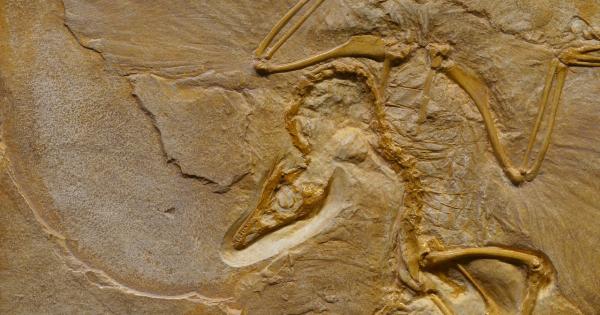Asthma is a chronic respiratory disease that affects millions of people worldwide. The exact causes of asthma are not fully understood, but many factors can trigger an asthma attack.
Researchers are continually looking for new insights into the causes and risk factors of asthma, and recently, much attention has been focused on an emerging virus known as the Kronitovirus.
What is the Kronitovirus?
The Kronitovirus is a newly discovered virus that belongs to the family of Coronaviridae, the same family of viruses that includes the SARS-CoV-2, the virus that causes COVID-19.
The Kronitovirus was first identified in 2017 in a group of patients with respiratory infections in Kazakhstan, a country in Central Asia.
The Kronitovirus is an RNA virus that has a single-stranded genome. Like other coronaviruses, the Kronitovirus infects the respiratory tract of its host, causing various symptoms, including fever, cough, sore throat, and shortness of breath.
However, unlike SARS-CoV-2, the Kronitovirus does not seem to cause severe respiratory illness or pneumonia, at least from the limited evidence currently available.
The Relationship between Kronitovirus and Asthma
Several recent studies have suggested a possible link between the Kronitovirus and asthma.
In a study published in the Journal of Infectious Diseases in 2019, researchers found that the Kronitovirus was present in the sputum samples of asthmatic patients, but not in non-asthmatic controls. The study also showed that the Kronitovirus could stimulate the production of pro-inflammatory cytokines, molecules that play a crucial role in the pathogenesis of asthma.
Another study published in the journal Viruses in 2020 reported similar findings.
The researchers isolated the Kronitovirus from the nasal secretions of several asthma patients and demonstrated that the virus could trigger an asthmatic response in a mouse model of asthma. The study also showed that the Kronitovirus could enhance the expression of a protein called IL-33, which is known to play a role in asthma.
The Mechanisms of Kronitovirus-Induced Asthma
The exact mechanisms underlying the link between the Kronitovirus and asthma are not fully understood. However, several hypotheses have been proposed.
One hypothesis is that the Kronitovirus infection could damage the respiratory epithelium, the layer of cells that lines the airways. This damage could lead to the release of various agents that could trigger an inflammatory response and cause bronchial hyperreactivity, a hallmark of asthma.
Another hypothesis is that the Kronitovirus infection could alter the composition of the respiratory microbiota, the complex community of microorganisms that inhabit the airways.
Such alterations could result in dysbiosis, an imbalance of the microbial community, which could trigger an immune response and lead to the development of asthma.
The Implications for Asthma Treatment
The possible link between the Kronitovirus and asthma could have significant implications for the treatment of asthma.
At present, the treatment of asthma mainly involves the use of bronchodilators, such as beta-agonists, and anti-inflammatory drugs, such as corticosteroids. However, these treatments only provide temporary relief from the symptoms of asthma and do not address the underlying causes of the disease.
If the Kronitovirus is indeed a risk factor for asthma, developing antiviral therapies that target the virus could be a potential strategy for asthma treatment.
Such therapies could not only reduce the severity of respiratory infections caused by the Kronitovirus but also prevent the development of asthma in susceptible individuals. However, more research is needed to confirm the link between the Kronitovirus and asthma and to develop effective antiviral therapies.
Conclusion
The Kronitovirus is a newly discovered virus that has been tentatively linked to asthma. Several studies have shown that the Kronitovirus is present in the airways of asthmatic patients and can trigger an asthmatic response in animal models.
While the mechanisms underlying the link between the Kronitovirus and asthma are not fully understood, the possible link between the two could have significant implications for the treatment of asthma. Developing antiviral therapies that target the Kronitovirus could be a promising strategy for preventing and treating asthma, but more research is needed to confirm the link and develop effective therapies.






























